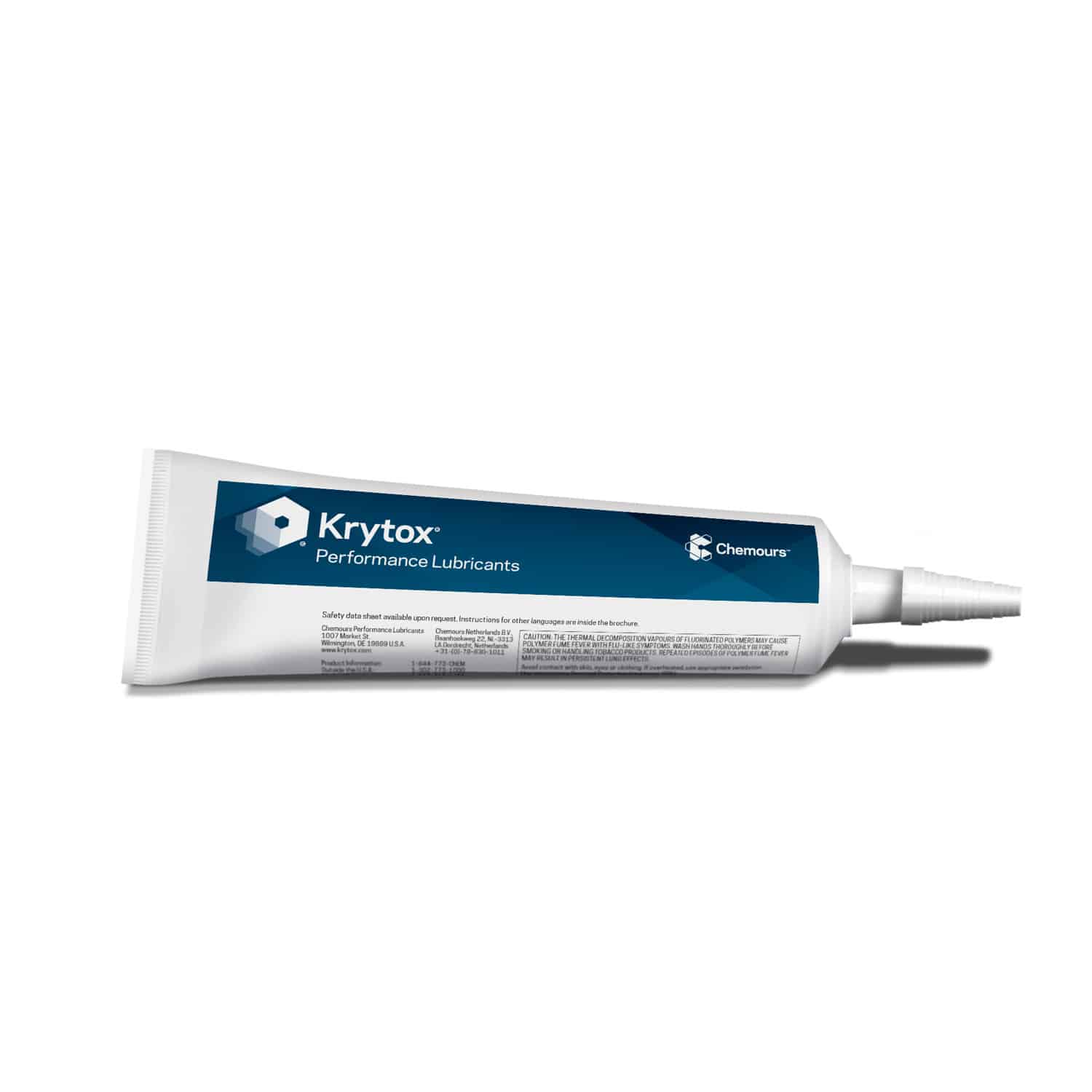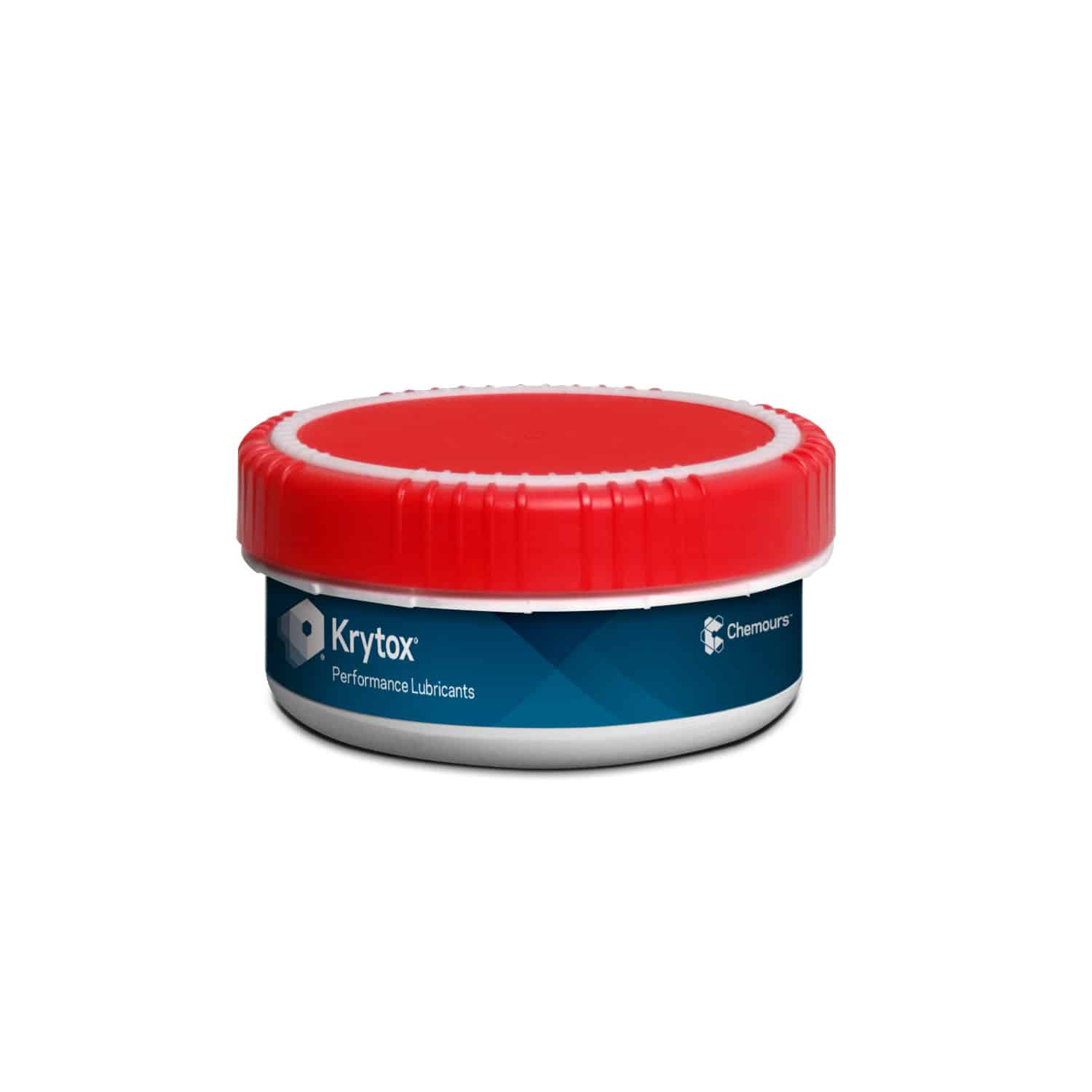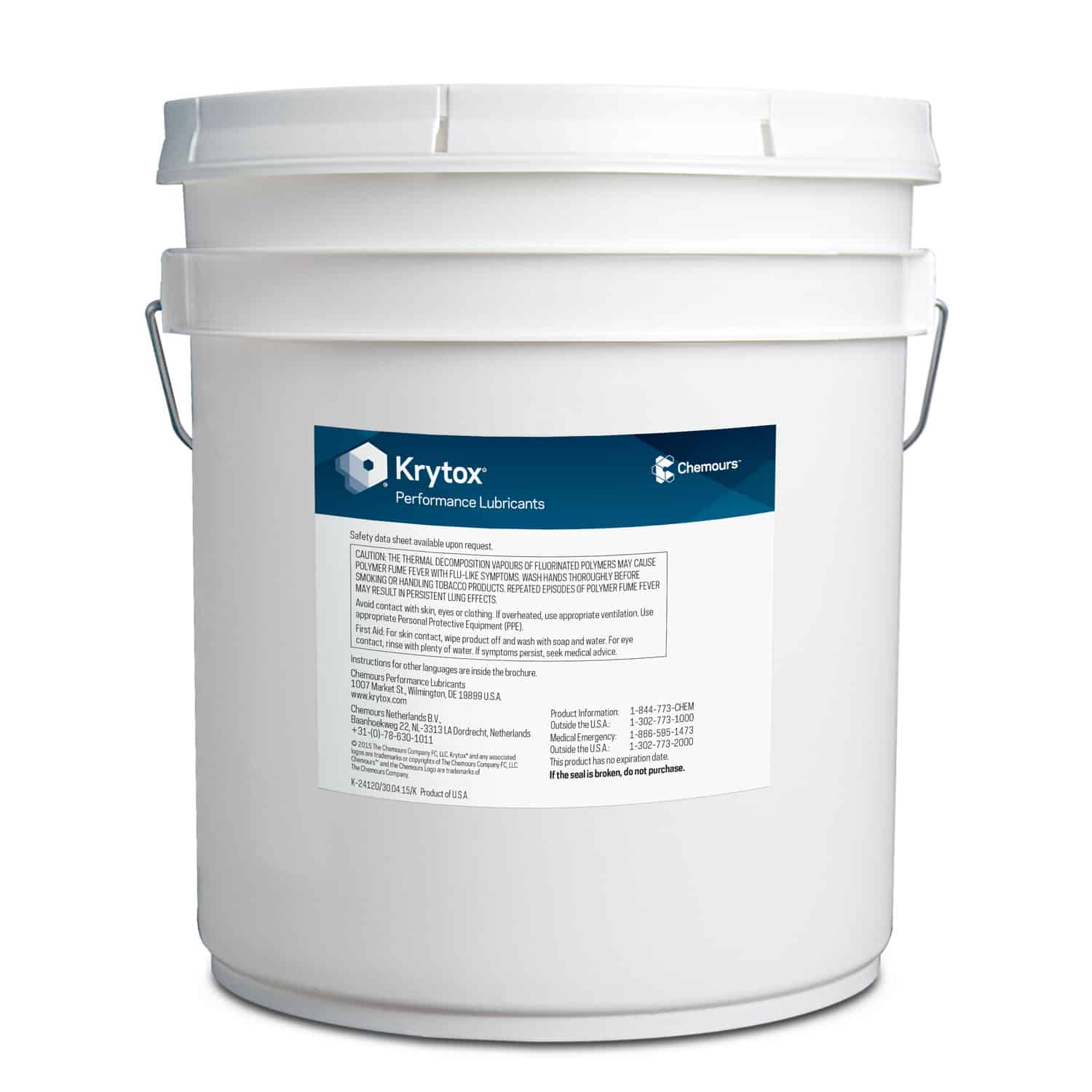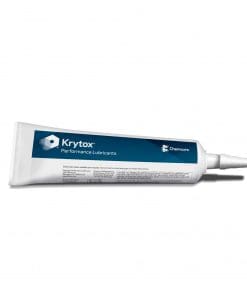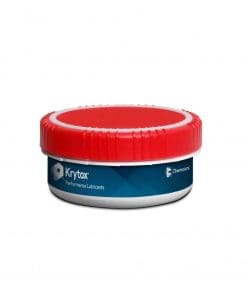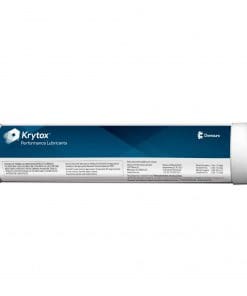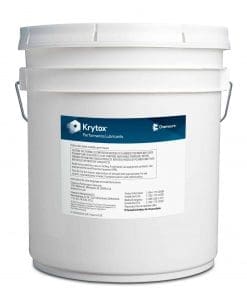Krytox™ EG 3000 Grease
Krytox™ EG 3000 grease has an Oil Viscosity of 500 cSt at 38°C and the estimated useful temperature range is -29°C to 316°C.

Krytox™ EG 3000 Grease | Robotic & Clean Room Lubricant
Non-Reactive- Non-Flammable lubricant series
Krytox EG 3000 grease is a semisolid material that uses a thickener to hold the oil in place. The base oil is the largest component of any grease, but the grease’s thickener and additives can also have a large impact on contamination of a clean room. Commonly used thickeners are metallic soaps of lithium and aluminum, solids like clay and silica, or solid polymers such as polytetrafluoroethylene (PTFE) and polyurea. Krytox EG 3000 grease reduce the volume of lubricant needed from what would be typical in an oil system. Lubricants for use in clean rooms require base oils that have been specially distilled to remove the more volatile, lighter molecules that might evaporate easily. In addition, the use of special thickeners that do not contain metals, reactive compounds, or large particles is also necessary to meet some clean room standards.
Why Krytox EG 3000 Grease?
Hydrocarbon, polyalphaolefins (PAO), synthetic esters, silicones, polyphenyl ethers (PPE), and perfluoropolyethers (PFPE) are a few common base oils used in the clean room environment. The least expensive choice is hydrocarbon- or PAO-based lubricants. These common base oils have good wear properties and can accept common additives; but, often, they don’t handle high temperatures and minimal outgassing requirements. In addition, the additives necessary to keep them stable are reactive and can cause problems if they get on critical components. Synthetic ester base oils have higher thermal stability, but are more reactive and can’t be used with some elastomer seals and plastic materials. For applications that require Krytox 143, Aerospace and Aviation oils please see Krytox™ 143 series.
Miller-Stephenson: Lubrication Experts, Superior Chemistry, Fast Delivery – a potent combination
At Miller-Stephenson, we understand the challenges engineers and scientists face with trying to select the best lubricant for current or new applications. With over 60 years of real-world experience, our highly trained team of technical experts and field engineers can assist you with identifying and selecting the optimal lubricant that best fits your operational parameter. Our large inventory of high-performance PFPE-base Krytox™ lubricants from Chemours, ensures we have the right lubricant for your needs, regardless of temperature, environment, safety, or performance of your system demands. For further information please review the articles below or contact a Miller-Stephenson representative.
Krytox™ is a trademark of The Chemours Company FC, LLC.
For more benefits and related articles:
To learn more about Krytox NSF H-1 Rated Food Grade Lubricants click here.
To learn more about Krytox Automotive Solutions click here.
To learn more about Krytox Automotive Noise, Harshness and Vibration solutions click here.
For the Krytox Frequently asked questions (FAQ) click here.
With help regarding which Krytox grease is right for you, click here.
Notwithstanding any express or implied indication to the contrary, product information provided on or via this website is supplied upon the condition that the persons receiving such information will make their own, independent determination as to a given product’s suitability for any contemplated purposes prior to use. In no event will Miller-Stephenson be responsible for damages of any nature whatsoever resulting from the use of, or reliance upon, information provided, directly or indirectly, on this website in relation to any product and/or application.
| EG 2000 | EG 3000 | |
| Estimated Temperature Range | ||
| °C | -34-288 | -29-316 |
| °F | -30-550 | -20-550 |
| Base Oil Viscosity, cSt | ||
| 20°C | 800 | 1600 |
| 38°C | 270 | 500 |
| 99°C | 26 | 43 |
| Grease Density g/ml | 1.93 | 1.93 |
Notwithstanding any express or implied indication to the contrary, product information provided on or via this website is supplied upon the condition that the persons receiving such information will make their own, independent determination as to a given product’s suitability for any contemplated purposes prior to use. In no event will Miller-Stephenson be responsible for damages of any nature whatsoever resulting from the use of, or reliance upon, information provided, directly or indirectly, on this website in relation to any product and/or application.
- Electronics
- Circuit Boards
- Bearings
- Valves
- Chains
- Rollers
- O-Rings
Notwithstanding any express or implied indication to the contrary, product information provided on or via this website is supplied upon the condition that the persons receiving such information will make their own, independent determination as to a given product’s suitability for any contemplated purposes prior to use. In no event will Miller-Stephenson be responsible for damages of any nature whatsoever resulting from the use of, or reliance upon, information provided, directly or indirectly, on this website in relation to any product and/or application.
Syringe | Tube | Jar | Cartridge | Pail |
| 0.5 oz. | 2 oz. | 0.5 kg | 0.8 kg | 5 kg |
1 oz. | 4 oz. | 1 kg | 7 kg | |
2 oz. | 8 oz. | 20 kg |
Notwithstanding any express or implied indication to the contrary, product information provided on or via this website is supplied upon the condition that the persons receiving such information will make their own, independent determination as to a given product’s suitability for any contemplated purposes prior to use. In no event will Miller-Stephenson be responsible for damages of any nature whatsoever resulting from the use of, or reliance upon, information provided, directly or indirectly, on this website in relation to any product and/or application.
- ASTM D445
- ASTM D972
- ASTM D97
- ASTM D217
- ASTM D2512
- FTMS 791B 321.1
- FTMS 791B 350.1
Notwithstanding any express or implied indication to the contrary, product information provided on or via this website is supplied upon the condition that the persons receiving such information will make their own, independent determination as to a given product’s suitability for any contemplated purposes prior to use. In no event will Miller-Stephenson be responsible for damages of any nature whatsoever resulting from the use of, or reliance upon, information provided, directly or indirectly, on this website in relation to any product and/or application.


